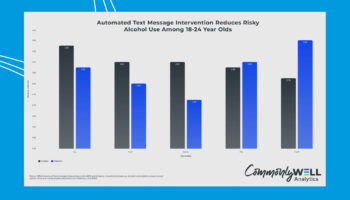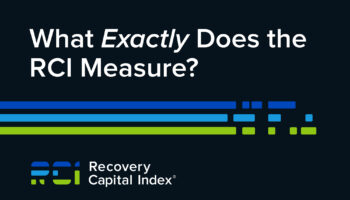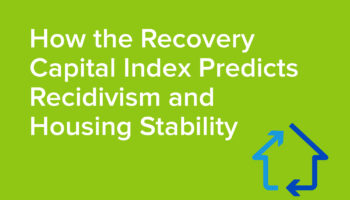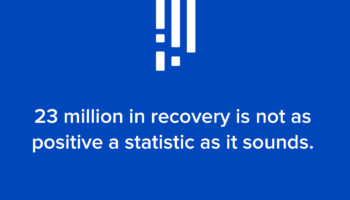Insights & Resources
Filtered by: Recovery Intelligence
Generative AI Won’t Take Your Job, But It Will Change It
By streamlining administrative tasks, Generative Artificial Intelligence will save time and resources, allowing care providers to focus on what truly matters – human connection.
Read More →By David
11/9/23
Recovery Intelligence Made Smarter With AI
We’re advancing Recovery Intelligence™ with generative Artificial Intelligence. With the announcement of our new Chief Technology Officer, Justin Smith, and his extensive background in machine learning and AI, it should be no surprise that we are amplifying Commonly Well’s methods with the power of Artificial Intelligence. We’re in the thick of designing a modern iteration of our analytics dashboard and data interactions that will help customers make a bigger impact on their clients’ care.
Read More →By David
10/12/23
The Evolution of Recovery Intelligence™
The quest to remake the lives of those seeking recovery requires continuous learning and improved understanding of the root causes and influences of addiction.
Read More →By David
9/19/23
Elements for good text prompts to improve survey response rates
Creating a relatable and engaging message prompts are key for client participation in assessments and surveys over time. But it all starts with a great opt-in sequence and welcome messages.
Read More →By David
7/22/23
1,000+ RCI’s Completed in June
1,017. This was the total number of Recovery Capital Index (RCI) survey's completed in June 2023; and it was the first month with 1,000+ completions since launching Commonly Well at the end of May 2020. It's a milestone worth a few moments of reflection.
Read More →By David
7/3/23
Text message interventions reduce problematic alcohol use
Automated text messages reduce bing drinking episodes AND negative drinking consequences when focused on a particular use management strategy for 18-25 year olds.
Read More →By David
6/13/23
Data Ownership and Privacy
Your healthcare data might be about you, but it’s not yours – not really. Current regulations seem to protect your data. Despite the appearance of strong privacy regulations, there’s a lot of grey area and rampant misuse. Yes, let’s fix the laws, but we need higher ethical standards and principles for data capture and use.
Read More →By David
5/31/23
The Recovery Capital Index: A Validated Assessment
The Recovery Capital Index (RCI) measures what it says it measures: addiction wellness. Developed at Face it TOGETHER (FIT) by David Whitesock (now CEO & Founder of Commonly Well), the RCI is built on three domains, nine indicators, and 22 components which have been proven to positively affect recovery and provide a comprehensive assessment of intervention effectiveness.It also focuses on longitudinal health outcomes, giving therapists and peer coaches insights into an individual’s progress, growth, and well-being over time.
Read More →By David
3/28/23
Beyond Treating the Addiction
When only 10-20% of our health can be attributed to clinical care, it’s time to go beyond just treating the addiction. A whole-person addiction care approach includes assessing and addressing a person’s recovery capital to improve outcomes. Treatment alone does not produce the health outcomes we expect. It is incomplete. The above statistic is a call to treat beyond the addiction itself. In the addiction recovery field, it’s a call to address a person’s recovery capital.
Read More →By Patrick
3/21/23
How the Recovery Capital Index Predicts Recidivism and Housing Stability
The Recovery Capital Index, by design, does not predict sobriety, but it can supply indications of return to use. When the data comes together with an individual’s story, we can design effective interventions based on that predictiveness. The number one question we get asked about the Recovery Capital Index (RCI) is, “Does it predict sobriety?”Answer: No. But it can supply indications of a problematic return to use or other behaviors.We understand why this is the question so many ask. It has everything to do with the traditional view of addiction; that recovery from addiction is synonymous with abstinence. Clinical care and society have long measured success as prolonged abstinence. So, it makes sense that most wonder about whether the RCI predicts sobriety.
Read More →By David
3/7/23
Normalizing Failure
In the addiction and recovery field, we seldom talk about whether what we do works. When half of the people served go through treatment five or more times before it sticks, we say it’s time to rethink the approach.The statistic is sobering. Today, the average number of times someone with a drug or alcohol addiction goes through treatment is four. In other words, it takes five or more multi-week treatments for a person to overcome their addiction.Failure has been normalized.
Read More →By Patrick
3/2/23
23 Million in Recovery: Not As Positive As It Sounds
Addiction and recovery advocates, for the last decade, have used 23 million people in recovery as their primary statistic to combat stigma and raise funds. Digging into the data, however, provides a more powerful narrative that recovery leaders and advocates need to know and use.
Read More →By David
2/24/23











